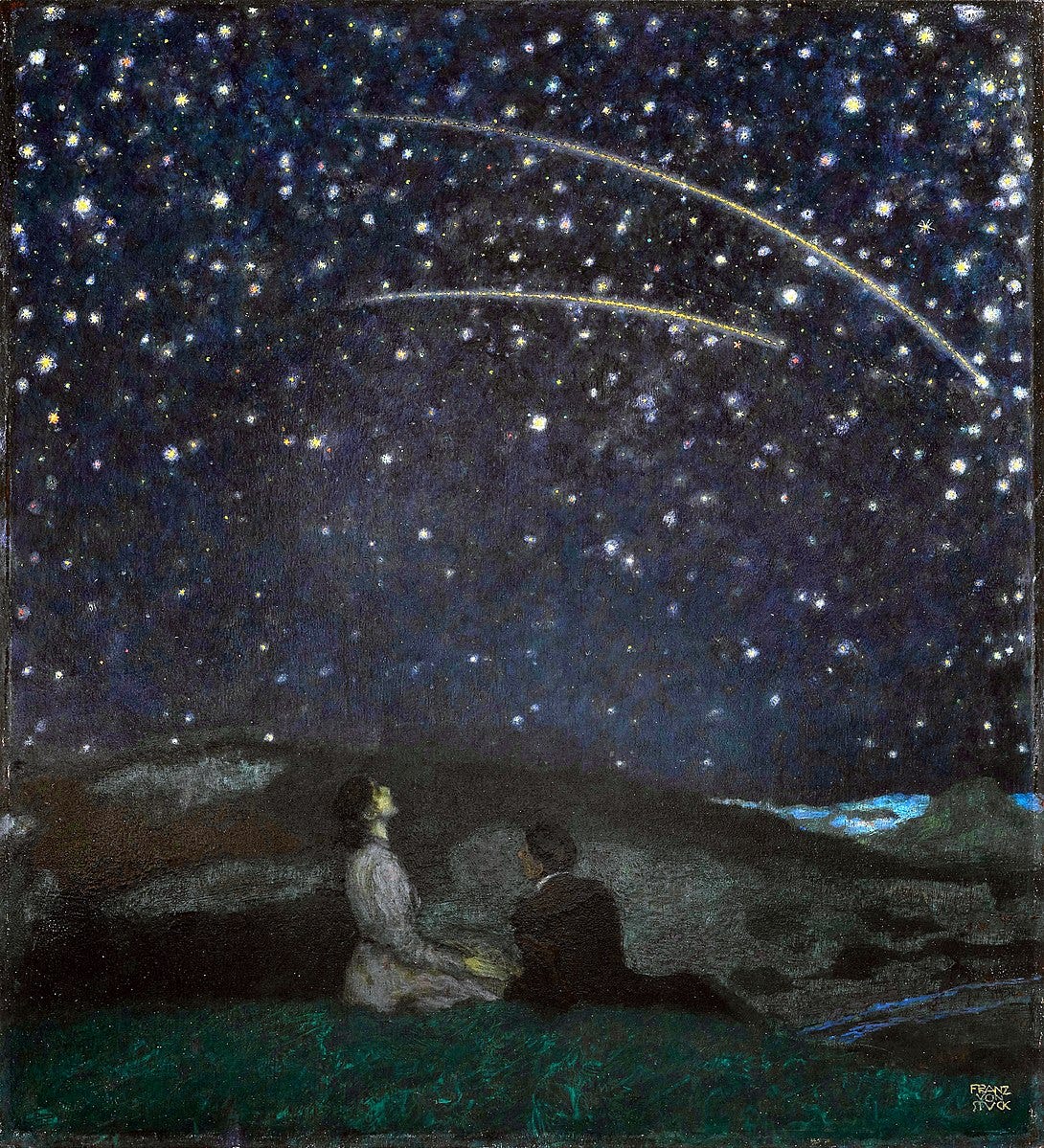
More ponderous blank verse, for those who enjoy such things.
“Julia” and “Aurelius” are fictional characters within the dialogue. This Aurelius is a purely fictional character, not Marcus Aurelius. Unfortunately when I wrote this piece I was not more creative in naming.
This is the mid-section of a tripartite sequence. In the previous post, the Philosopher recounted his wanderings across the globe, in which he perceived “beauty, silent and intangible” amidst the various sights and locations. An offhand reference to “all the worlds” prompts the second stage of his exposition, in which he expands from the wonders of the known world to a consideration of all the worlds that might potentially exist across the cosmos.
Julia:
Tell me, Philosopher,
You spoke of "all the worlds": now, does that mean
That there are other worlds?
Aurelius:
Wait till night falls: a multitude of stars
Will soon appear, like shining diamonds set
In the empty blackness of the cloudless sky.
Know that each star's a sun in its own sphere,
Rising and setting on a host of worlds
Which circle in their orbits without end
Around its burning orb. Know that each world
Has its own shape and contours: continents,
Plains, mountain-ridges, dark abysses, seas;
Some vacant, dark and inhospitable,
Whilst others, we might guess, seethe with strange life
In fertile oceans, forests, marshes, fields,
And habitats beyond the narrow scope
Of this Earth's possibilities — and more,
For some surmise that there are other worlds
On which men dwell, or creatures like to them,
Where cities, monuments and temples stand,
Where peace is won and lost, and wars are fought,
Where whole civilizations rise and fall,
All unbeknownst to us. Whether this be
Mere fantasy or not, I cannot say —
But in my mind I firmly am convinced
That neither man nor his fair world exhausts
Creation's endless possibilities.
© Metrical Poet, 2025.



I believe this, too. Beautiful poem. Reading this made me feel expansive, full of wonder.